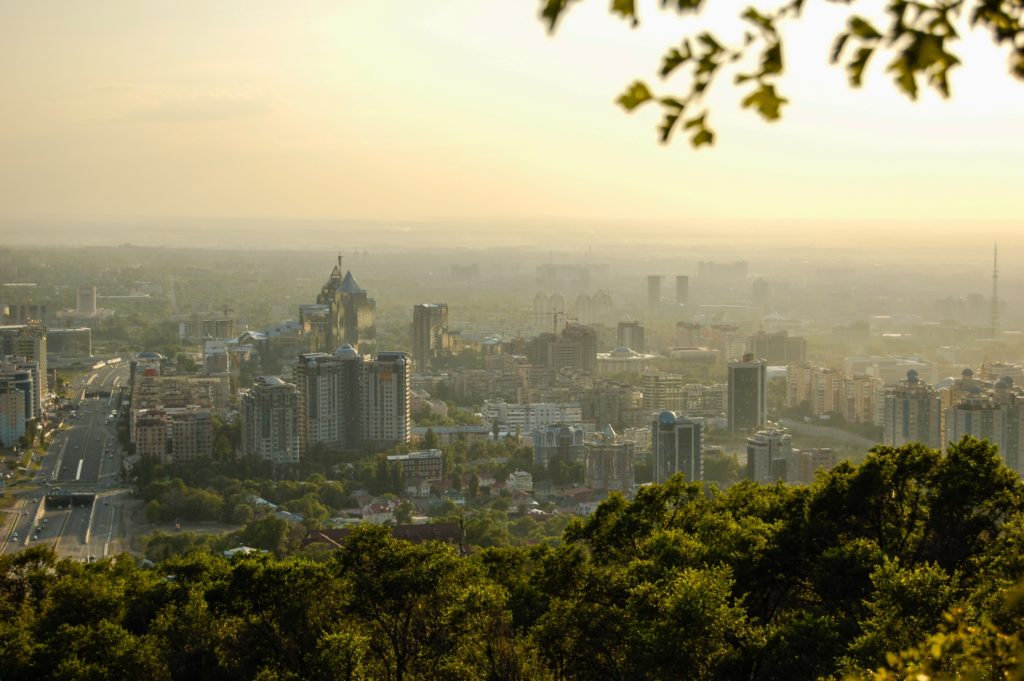Kazakhstan has made great success in recruiting foreign business and investment, upgrading practically every area of conducting business to facilitate and boost foreign direct investment (FDI). Kazakhstan is the “Buckle” in China’s Belt and Road Initiative since it is the main land corridor connecting China, Russia, and Europe via recently expanded rail and highway networks (BRI).
The potential for trade between Kazakhstan and other countries has greatly increased. A nation that was founded on oil exports is now expanding into other industries such as agriculture, technology, and finance.

Improving investment climate
Kazakhstan generates around 60% of the region’s GDP and is Central Asia’s leader in terms of economic growth and FDI. Following contractions in neighboring Russia and China, Kazakhstan’s GDP only grew by 1.2 percent between 2013 and 2015 before rebounding to rise by 3.9 percent in 2017.
Since Kazakhstan’s accession to the World Trade Organization in 2015, comprehensive trade, tariff, and FDI regulatory reforms have increased GDP and improved the country’s ranking on the OECD’s FDI Restrictiveness Index.
Kazakhstan has significantly improved its investment policy and business environment during the last few years, according to the OECD. According to the US State Department’s 2018 Investment Climate Statement, Kazakhstan has the “best investment climate in the region” and has made “significant progress” toward establishing a market economy.
There are reportedly 9,000 foreign businesses working in Kazakhstan right now. Value-added tax (VAT) is now only 12 percent, there is a 20 percent corporation tax, and employers are subject to a flat 11 percent social tax based on employee wages. The personal income tax rate is now 10% for citizens and between 5% and 20% for non-citizens.
State-of-the-art connectivity
According to government statistics, Kazakhstan has invested $30 billion in its transportation and logistics infrastructure over the last decade and plans to spend $8.4 billion to resurrect the Silk Road.
The new 7,000-kilometer-long Western Europe-Western China Highway includes a 2,700-kilometer segment in Kazakhstan, and the development of northern and southern rail links has already significantly increased shipping volume and capacity. The southern rail line crosses Kazakhstan to the Caspian Sea port of Aktau before crossing the water to Georgia, Turkey, and the EU via Bulgaria. The northern route departs from southwest China and travels through Kazakhstan before entering Russia, Belarus, Poland, and Germany to reach Duisberg, Europe’s largest dry port.
Both domestic and foreign-owned export businesses have benefited from improved transportation connectivity. Siemens Alstom, which has been in Kazakhstan since 2010, owns the majority of Astana’s Electric Locomotives Assembly Factory (EKZ), which will supply 295 electric engines for the new rail lines.
AIFC establishes new rules of law
The Astana International Financial Centre (AIFC) opened in July 2018 to dominate Central Asia’s financial scene. It aids Kazakhstan’s efforts to attract foreign investment for domestic enterprises and infrastructure.
The creation of the AIFC Court, an independent commercial dispute resolution court for businesses registered with the AIFC, is one significant AIFC development. To foster a comfortable atmosphere of trust and openness, the court is based on the principles of English common law and is staffed by qualified judges from the United Kingdom.
The best-emerging markets
Kazakhstan’s president, Nursultan Nazarbayev, stated in his annual state-of-the-nation speech on October 5 that the country has attracted $300 billion in foreign direct investment over the last 20 years. We believe that the growth of small and medium-sized businesses will be the cornerstone of our economic prosperity.
Currently, Kazakhstan is ranked number 28 out of 190 nations in the World Bank’s Doing Business Index.
As a key component of its economic development, the government is concentrating on assisting exporters. Over the next three years, President Nazarbayev has promised to invest $1.3 billion to stimulate exports of non-commodities and the manufacturing sector.







